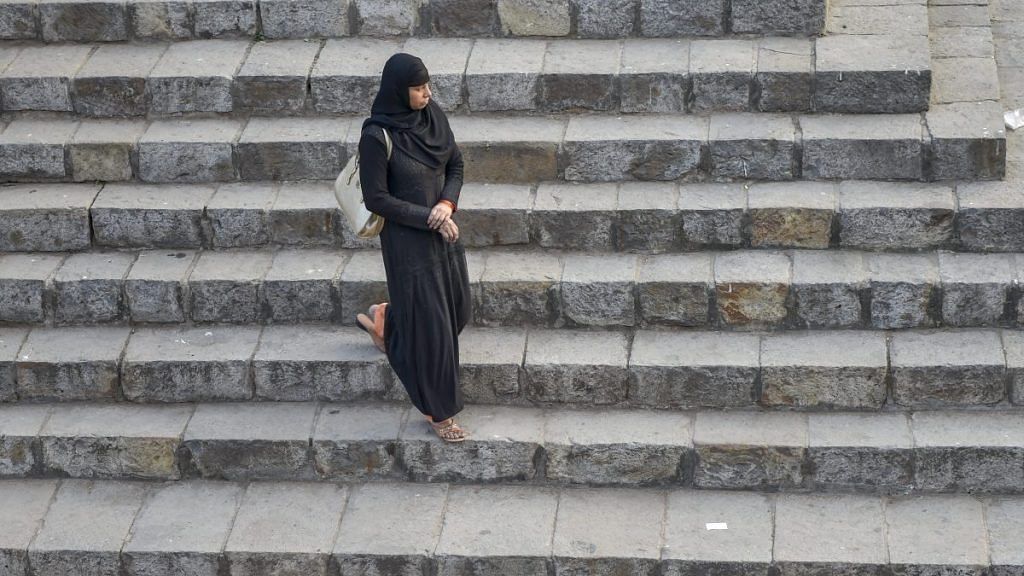While women are often, and erroneously, reminded that their best prayer is performed at home, selective amnesia overtakes society when it comes to talking of the condition of women during the time of the Prophet. Or even the days of Caliph Umar. During his time, women not only went to the mosques, but also participated in battles!
Women are never told that the same caliph appointed a well-known female companion al-Shifa bint Abdullah Al-Adawiyyah as the Supervisor of the Markets of Medina. She was appointed not because of the dearth of able men, but because she was more meritorious, with better leadership skills.
She used to go to the Medina markets with a whip in her hand, ready to strike at any indiscretion. No companion of the Prophet objected to her lofty status. As for Caliph Umar himself, well, he was the imam of the Prophet’s Mosque. But he did not stop his wife from praying in the mosque. According to Sahi Bukhari Hadith, the wife of Umar used to go to the mosque (Al-Masjid al-Nabawi) for the prayers of Fajr and Isha. It was said to her, ‘Why do you go out when you know that Umar doesn’t like it.’ She said, ‘What stops him from forbidding me?’ It was said to her, ‘What stops him, is the saying of the Prophet who said, “Do not stop the women from the Masajid (mosques) of Allah”.’ No, the caliph did not forbid women from going to the mosques and praying there, or even giving a sermon. He followed the Prophet’s instruction. It is the men in the 21st century Indian subcontinent who do that. Not the Prophet. Not the caliphs. Not the Quran, but ill-informed men drunk on potions of male superiority, a society where men decide and women follow, where men instruct and women obey.
Also read: Saudi Arabia considers making ‘abaya’ optional for women as it looks to boost tourism
Sociocultural mores rather than religious dictates are at play, as is the incomplete and lopsided knowledge of the scriptures. To this, noted Islamic scholar Dr Israr Ahmad said, ‘The backward and ignorant Muslims have imposed their own self-forged model upon the Muslim woman. This model has indeed reduced the Muslim woman to merely a beast of household burdens and a sex-maid, and imperceptibly negates and denies her independent spiritual existence.’ The immutable instruction of the Almighty was completed with the revelation of the Quran. In verse 3 of Surah Maida, it is said, ‘This day, I have perfected your religion for you, completed My Favour upon you, and have chosen for you Islam as your religion.’ After the revelation of this verse, no argument can hold about ‘the Prophet’s times were different’ or that ‘men were more decent and pious’, etc.
The fundamental principles of the Quran remain valid for all times to come. Suggesting that one can pick and choose verses to follow according to preference is tantamount to rebellion. Prophet Ibrahim did not pick and choose the Lord’s instructions to follow, nor did Prophet Lot. Or Prophet Nooh. The Quran has to be followed in letter and spirit. Moving away from the message of the Quran amounts to going astray. As the Prophet himself said, ‘Every innovation (in matters of faith) is misguidance, and every (one practising) misguidance will be in the Fire.’
Barring women from the mosques is an innovation one can do without. It is time for women to reclaim the space they have surrendered. And time for men to stand up against this injustice perpetuated in the name of faith. It is especially relevant today for people of all genders to have access to places of worship and avenues of self-realisation. Opening the doors of the mosques goes beyond the cry of gender justice and it reaches the realms of human justice. The faithful believe Allah is Adil, one who does justice. Excluding 50 per cent of the society from the avenues of self-realisation leads to debilitation of the community, besides being an obvious injustice towards women.
Also read: Why a Muslim women’s group is pro triple talaq ban, but doesn’t support Uniform Civil Code
If the community fails to take quick remedial measures, it could well be staring at another triple talaq-kind of situation, where right wing hawks will masquerade as well-wishers of Muslim women, pushing the Muslim men into an indefensible situation. Men can then draw sustenance neither from the Quran, as in the case of the Shayara Bano versus the Union of India judgement, popular as the triple talaq judgement in the mind of the common Indian, nor from the larger Indian society. Or even from the mosques all over the world.
This deliberate exclusion of women from the mosques does not happen in the Arab world. Women enjoy complete right to go to Al-Masjid al-Nabawi, Al-Haram or any other mosque in Saudi Arabia, the United Arab Emirates (UAE), Qatar, etc. It is the same with women in the Muslim countries of South-East Asia, for example, Indonesia or Malaysia. Women in most European countries and the US do not face this embargo, where mosques are often used as sociocultural centres for both men and women. This discrimination seems to be reserved only for women in India, Pakistan and Bangladesh. In the Indian subcontinent, most mosques are out of bounds for women, except some in Kerala or others maintained by the minority Ahl-e-Hadith sect.
Pertinently, women enjoyed much greater freedom during the days of the Delhi Sultanate and the Mughals. Many royal women were known to have built imperial mosques; many mosques, from Delhi to Bengal, had sections reserved for women to come and pray. It all changed with the decline of the Mughals and the coming of the British. As conservative, orthodox elements raised the cry of religion being in danger, women were the first to be sent into the closet. They have not emerged from there ever since.
